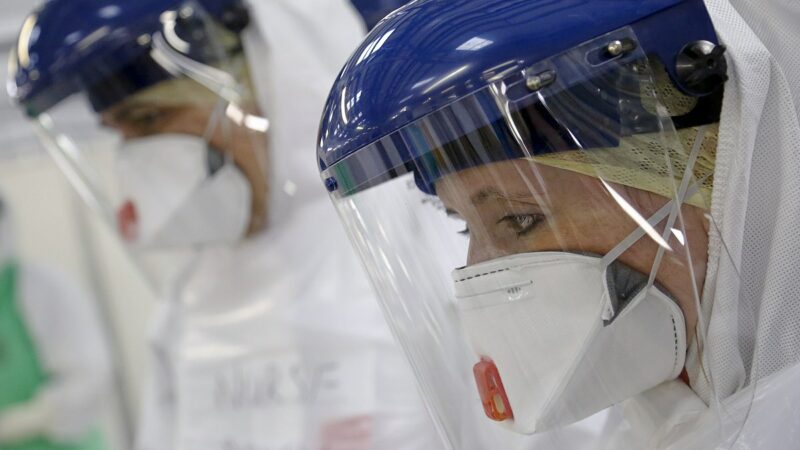"The mental health impact of what NHS frontline workers are facing is like that faced by soldiers at times of war."

On the frontline of the COVID-19 outbreak are some truly remarkable people. They collect, triage and treat patients, clean our hospitals and manage overcrowded A&Es without access to testing or the right gear to protect themselves.
They are students who have been asked to leave their medical textbooks at home and forget about their final exams. Others have come out of retirement, and despite their many decades of experience, have never confronted anything quite like what this country is now facing.
Even before this, they went years without a proper pay rise, were burdened with student debt, and left overstretched and under-resourced in the face of huge demand.
Our NHS staff are truly the best of us, but we are in danger of too often taking for granted their extraordinary courage and resilience. In addition to the shameful lack of PPE, there are considerable gaps in the mental health provision available for healthcare workers during these extremely difficult circumstances. As Professor Neil Greenberg has highlighted, the circumstances they face put them at very real risk of Post Traumatic Stress Disorder (PTSD) if they don’t get the support they need.
The Laura Hyde Foundation, which provides psychological support to emergency service workers, has reported a 90% uplift in the number of calls and messages it has received from struggling frontline staff in recent weeks.
In an attempt to stem the widening gaps in provision, NHS workers are being given free subscriptions to mindfulness apps, and one nurse has even taken it upon herself create an online digital mental health toolkit. These are helpful interventions, but they’re no substitute for properly resourced, professional support services.
With staff being placed under increasing pressure by burgeoning patient numbers and colleagues needing to self-isolate, it is of course welcome that the NHS have now set up a helpline to provide psychological support for their workers.
But beyond this, we will need a wider programme of mental health provision to cater not just for our existing healthcare staff, but for the thousands of student and retired doctors, nurses and midwives now bolstering the frontline .
During the last Mayor’s Question Time meeting at City Hall, Sadiq Khan made an important observation – the need for the government to have a proper recovery plan for after the pandemic. The healing our public services will need isn’t just economic – it’s a question of how we care for our carers when the clapping stops.
This is why we need a firm commitment from the government and NHS to the establishment of a longer-term dedicated support scheme for staff suffering from trauma.
The mental health impact of what NHS frontline workers are now facing is analogous to that faced by soldiers at times of war. All healthcare workers should have the option of being assessed for conditions such as PTSD, and given a straightforward route towards accessing to the appropriate counselling services.
As a London Assembly Member and a GP, I will continue to take every opportunity to stand up for our NHS staff and ensure their welfare remains a top priority.
Through our weekly applause, our fundraising efforts and our social media, let’s continue to celebrate those undertaking Herculean efforts to stem this pandemic.
But let’s also ensure that when all this is over, our healthcare staff get the help and support they need. It’s the very least they deserve.
Dr Onkar Sahota AM is London Assembly Labour’s Health Spokesperson, Chair of the London Assembly Health Committee and a practicing GP.
To reach hundreds of thousands of new readers we need to grow our donor base substantially.
That's why in 2024, we are seeking to generate 150 additional regular donors to support Left Foot Forward's work.
We still need another 117 people to donate to hit the target. You can help. Donate today.



